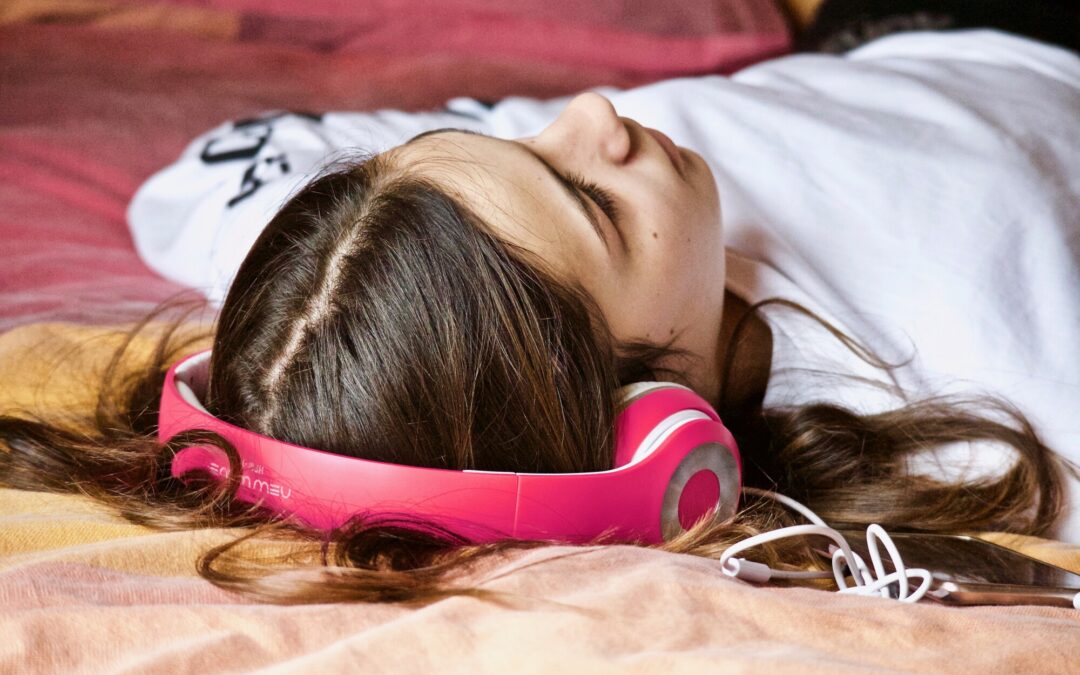What’s the correlation between music and stress? The past two years have been historically stressful for many people.
Between a global pandemic, political upheaval, catastrophic weather events, and interpersonal drama, people are more stressed than they have ever been. Therapy, meditation, yoga, and other stress-relieving techniques are gaining in popularity.
With that in mind, it makes sense that music for anxiety and stress is getting attention. That’s why we’ve assembled a guide to the connection between music and stress. Let’s get started!
1. Music Provides Connection
Bonding with other people is difficult. Depending on where you live, you may still be worried about the pandemic. And navigating stresses around work, family, friends, and other relationships makes connection difficult.
This is especially true in the modern age when scientists say that we are suffering from a lack of interpersonal connection. That’s why music is the universal language—you can connect with anyone over their love of the same band, artists, genre, or performance.
Relaxing music for anxiety and stress is different for everyone. If you want to connect with people who love the same music you do, your ‘calming music’ doesn’t need to be classical jazz. Whether you love country, hip-hop, or pop, any music to relieve stress and anxiety can be effective.
2. Music Is a Distraction
Sometimes, you need to work through your feelings. Therapists sometimes refer to this process as ‘sitting with your feelings.’ There may not be concrete work, but feeling them—as opposed to distracting or stuffing them down—is crucial to the healing process.
Conscious processing isn’t the only way to deal with them, however. Instead, being able to ‘feel your feelings’ through music is important. That’s why we tend to turn to a Taylor Swift album or an Adele single during times of heartbreak.
The music is sad, so it compounds our own feelings of sorrow or heartbreak. This provides a sense of camaraderie, but it’s also a distraction. Hearing how someone else processed their feelings provides an alternate view of the situation.
When you’re distracted, your body is no longer in fight-or-flight mode. Instead, you have a chance to calm down, think about something else besides your breakup or toxic job, and take a time-out from your own emotional or mental issues.
Whether you choose classical music for stress and anxiety or choose to jam out to Broadway show tunes, any type of distraction can help. Music that you aren’t familiar with can sometimes be better since it forces your brain to tune in and pay attention.
3. Music Reduces Cortisol Levels
Cortisol is sometimes known as ‘the stress hormone.’ It triggers a fight-or-flight response in your body, which is good for immediate survival. This reaction helps people exhibit superhuman strength in crisis, run farther than they ever dreamed, and survive the predator-prey situations our ancestors experienced.
Today, though, cortisol can often do more harm than good. If you’re in a state of chronic stress, your body is constantly releasing cortisol. This may leave you emotionally drained and exhausted.
When you listen to calming music to reduce stress, your cortisol levels often drop. The human body wasn’t made to maintain extreme fight-or-flight responses over long periods of time.
But when you’re grieving, or going through a breakup, or staying at a toxic job, that’s exactly what your body does. Listening to music to relieve stress and anxiety can provide small patches of relief to help you get through the day.
4. Music Slows You Down
If you’re a big fan of rock or hip-hop, listen to those genres! But there’s still an argument to be made about classical music for stress and anxiety.
When you listen to calming genres, such as classical music, indie music, or other slow music, your body calms down. Your body’s biological processes, such as breathing and heart rate, often react to the music you’re listening to.
When your breathing slows and your heartbeat is beating normally, you will feel less stressed. This gives you an opportunity to relax on a biological level, not just a mental or emotional one.
5. Music Sparks Creativity
Music to relieve stress and anxiety is a great idea because it sparks creativity. Human beings weren’t made to exist in a constant state of production. Instead, taking time to be creative, use our imaginations, and make things is crucial.
Creativity is often emphasized for children. Rather than considering it childish, taking creativity into our adult lives is massive stress relief. There’s no ‘wrong way’ to be creative, which lowers the stakes and associated stress with everyday life.
That’s why listening to music can help spark your creativity. Whether it’s an instrumental piece or there are lyrics involved, music is meant to tell a story. Humans are communal, storytelling creatures, and hearing someone’s story can help you decide to tell one of your own.
Whether you make your own music, tell verbal stories, draw, or simply enjoy imagining stories in your head, music prompts the creativity that can distract you from ‘the real world.’ If you’re looking to reduce stress and anxiety, music is the way to go.
The Connection Between Music And Stress
Music and stress are associated together because one helps reduce the other. Whether you prefer old country classics or new rap music, there’s something for everyone.
Take the time to experiment a little when finding the genre or artist that really calms you down. After all, there’s no reason to subject yourself to elevator music just because you think it ‘should be’ calming. In fact, listening to music you hate will only raise your stress levels—not reduce them.
Being able to holistically care for yourself, through music, a healthy diet, and the right supplements are also good ways to reduce stress. If you’re interested in learning more about being able to holistically take care of yourself, contact us today! We can help.

